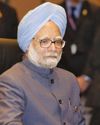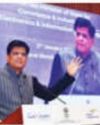
News headlines from Bangladesh, and the diverse reactions in India and other countries, are not only disturbing and distressing, but also disquieting as they bode ill for developments in South-east Asian politics. The promising dawn of the 'century of Asia' seems to be eclipsed in the dark shadows of violence. Bangladesh, liberated in 1971 with the help of the Indian Army, is at the crossroads of history facing the harsh realities of civilian-Army politics, ethnic clashes, bloodshed and social turmoil across its otherwise serene riverine countryside.
In the new year of 2025, it pays to recall the sub-continent's historic Swadeshi movement and the heights it reached in 1905: also, an opportune moment to pay homage to heroes of the movement, 120 years after their singular and often spectacular achievements. It is also an eye-opener to the shaping of nationalist thought and action which brought together some of the finest, bravest, boldest Indians when the decision to partition Bengal was implemented by the British Raj in 1905. The unity demonstrated in 1905 could serve as a lesson of history today.
Years before Prof Sumit Sarkar of Delhi University wrote the epic 'The Swadeshi Movement in Bengal 1903-1908', his address during the Indian History Congress in 1970 sought a deeper understanding of the nature and working of imperialism, both in India and on a world scale. His address was titled 'Imperialism and Nationalist Thought'; it was focused on Bengal while acknowledging equally significant political and social developments in Maharashtra and Punjab.
This story is from the January 01, 2025 edition of The Statesman.
Start your 7-day Magzter GOLD free trial to access thousands of curated premium stories, and 9,000+ magazines and newspapers.
Already a subscriber ? Sign In
This story is from the January 01, 2025 edition of The Statesman.
Start your 7-day Magzter GOLD free trial to access thousands of curated premium stories, and 9,000+ magazines and newspapers.
Already a subscriber? Sign In

Quiet Revolutionary
Though widely seen as a reserved technocrat, Dr Manmohan Singh's political genius lay in how he positioned these changes. Quoting Victor Hugo - \"No power on earth can stop an idea whose time has come” — he framed liberalization not as submission to Western pressure but as India's destined path to becoming a global economic power, providing crucial political cover for future reformers across party lines. This was significant because it allowed regional parties and opposition leaders to gradually embrace aspects of economic liberalization without appearing to abandon their socialist credentials
Gambhir clears air about future of senior players
India’s 3-1 series loss in BGT: Head coach Gautam Gambhir insists thatRohitSharmaandVirat Konli's future plansare entirely their calland the decision to retire or notlies with the players themselves

Gritty Australia reclaim Border-Gavaskar Trophy
The 3-1 series defeat also pushes India out of the WTC finalrace

Sabalenka holds off Kudermetova to win first Brisbane title
Aryna Sabalenka won her second Brisbane International title to enjoy a perfect start to her 2025 WTA Tour season.

Fare thee well, Biren Singh?
The Shoguns in New Delhi's North Block have indeed a weird sense of humour.

Manmohan Singh and his enduring contributions to the North-East
Dr Manmohan Singh's association with the Northeast goes beyond political representation—it is a story of deep-rooted ties and sustained efforts to address the region's unique challenges.

We are excited about India's focus on energy storage systems and hybrid power solutions
India has set a goal of achieving 500 GW of renewable energy capacity by 2030.

Market valuation of four of top 10 most valued firms erode by ₹96,605.66 crore
The combined market valuation of four of the top 10 most valued firms eroded by Rs 96,605.66 crore last week.

FDI inflow surges as investors recognise India as top investment destination: Piyush Goyal
Union Minister for Commerce and Industry Piyush Goyal has said that FDI inflows are surging with investors from the Middle East, Japan, European Union, and the US recognising India's status as a top investment destination.

Eight Key Office Markets Witness 6 Per Cent Decline in Fresh Supply of Workspaces: Report
During 2024, eight major office markets saw a 6 per cent annual decline in fresh supply of workspaces, even as the demand hit an all-time high, a report by the real estate consultancy firm said.